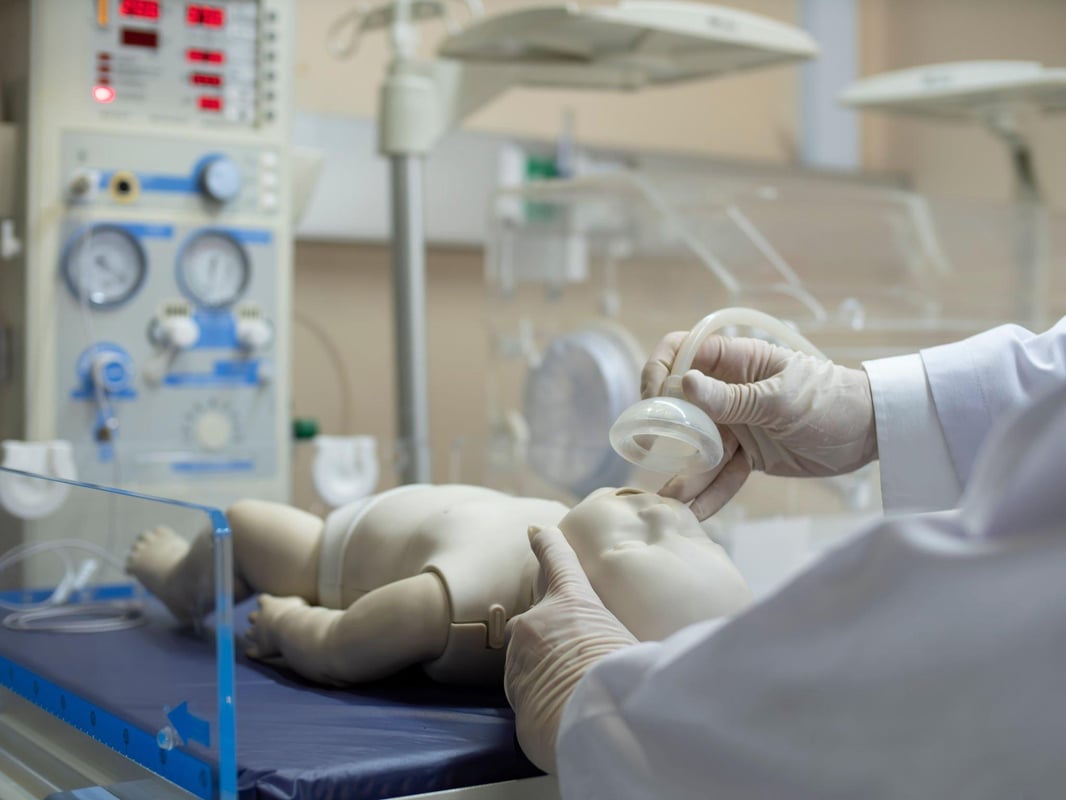$285 total
$190 total
$276 total
$2,075 total
$365 total
$150 total
No cost info
$285 total
No cost info
$150 total
In the expansive healthcare field, various roles require specific certifications. One such certification, pivotal in pediatric healthcare, is the Pediatric Advanced Life Support (PALS) certification. This blog aims to guide you through everything you need to know about PALS classes in Los Angeles, from understanding what PALS is, its training requirements, what to look for in a class, expectations from the classes, the certification process, and how to find related jobs. We'll also explore other classes you can take after becoming PALS-certified.

Pediatric Advanced Life Support (PALS) is an American Heart Association (AHA) certification that equips healthcare providers with the skills and knowledge to respond to life-threatening situations involving infants and children. PALS-certified professionals learn to recognize and alleviate conditions that may lead to pediatric cardiac arrest and perform advanced lifesaving skills in the event of cardiac arrest.
The training requirements for PALS vary depending on the provider. However, certain prerequisites are typically required for all PALS courses:
Basic Life Support (BLS) certification: BLS certification is a prerequisite for PALS training. You can find BLS training programs through AHA-authorized training centers in Los Angeles.
Basic ECG Rhythm Identification: This is a crucial skill for PALS, as you'll need to identify and interpret various cardiac rhythms.
Knowledge of Pediatric Advanced Life Support Algorithms: PALS providers follow these step-by-step procedures during a pediatric emergency.
When choosing a PALS course, it's crucial to consider the following:
Accreditation: Ensure the course is accredited by the American Heart Association (AHA).
Course Content: The course should cover all aspects of PALS, including airway management, rhythm recognition, defibrillation, and pharmacology.
Experienced Instructors: The quality of instructors can significantly impact your learning. Look for instructors with experience in pediatric emergency care.
Hands-on Training: PALS is a practical skill, and hands-on training is vital. Ensure the course provides ample opportunity for practice.
PALS classes typically include theoretical instruction, practical demonstrations, and hands-on practice. You can expect the following from a typical PALS class:
Lectures and Video Demonstrations: These will cover the principles of PALS, including recognition and treatment of conditions that may lead to pediatric cardiac arrest.
Skill Stations: These allow students to practice the skills learned in lectures and demonstrations, such as airway management and rhythm recognition.
Simulation Training: Simulation training uses manikins to mimic real-life pediatric emergencies, allowing students to apply their skills in a controlled environment.
The process for PALS certification typically involves the following steps:
Complete a PALS Course: Ensure the course is AHA-accredited. Upon completion, you should have a thorough understanding of the PALS algorithms and the ability to perform various procedures.
Pass the Written Exam: The exam tests your theoretical knowledge of PALS. You'll need to score 84% or higher to pass.
Pass the Skills Test: The skills test assesses your ability to apply PALS principles in a simulated pediatric emergency. You must correctly demonstrate all procedures to pass.
Receive Your Certification: Once you pass both exams, you'll receive your PALS certification, valid for two years.
After obtaining your PALS certification, you can find related jobs in various healthcare settings, such as hospitals, clinics, and emergency medical services. Some job titles include Pediatric Nurse, Pediatric Emergency Nurse, and Pediatric Intensive Care Nurse. You can find these job opportunities on various job boards or through healthcare recruitment agencies. You can also network with other healthcare professionals or join professional organizations to learn about job opportunities.
Once you become a PALS provider, you may want to further expand your skills and knowledge. Here are some related courses you can consider:
Advanced Cardiovascular Life Support (ACLS): This course builds on the knowledge gained in PALS and BLS, focusing on adult patients.
Neonatal Resuscitation Program (NRP): This course focuses on the resuscitation of newborns.
Emergency Nursing Pediatric Course (ENPC): This course is tailored for nurses working in pediatric emergency care.
Los Angeles offers a variety of other healthcare-related courses that could complement your PALS certification. Some of these include:
PALS certification is an invaluable asset for any healthcare professional working with children. It equips you with the skills to provide lifesaving care in pediatric emergencies and opens new career opportunities in the healthcare field. However, the key to successful certification is choosing the right PALS class. Ensure that the course you choose is AHA-accredited, covers all aspects of PALS, and provides ample opportunities for hands-on practice. Once PALS-certified, consider expanding your skills further with courses like ACLS, NRP, or ENPC. With the right training and certification, you can make a significant difference in the lives of your pediatric patients.
Dreambound's extensive guides dig into the specific requirements and challenges that are different for each city in the US. Check out some of our other guides below:
Weighing the possibilities of a career shift ? Dreambound has written many extensive guides to guide you in making informed decisions. Check out some of these resources below:
Dreambound's platform allows prospective students to find the right educational program for them through searching, filtering, and connecting with our extensive selection of career & technical education partners.
Dreambound has over 70 programs across healthcare, technology, business, and industrial trades. This includes programs such as Medical Billing, Cybersecurity, and welding.
Some of our schools offer financial aid for those who qualify. Many others offer payment plans, where you can pay the cost of class over time.
Yes, Dreambound offers many online programs. On Dreambound's search, you can filter by online, in-person, and hybrid (part online, part in-person).
Dreambound is completely free for you to use! We are supported by schools and organizations who pay to advertise on our website, so we can offer all of our career resources for free.